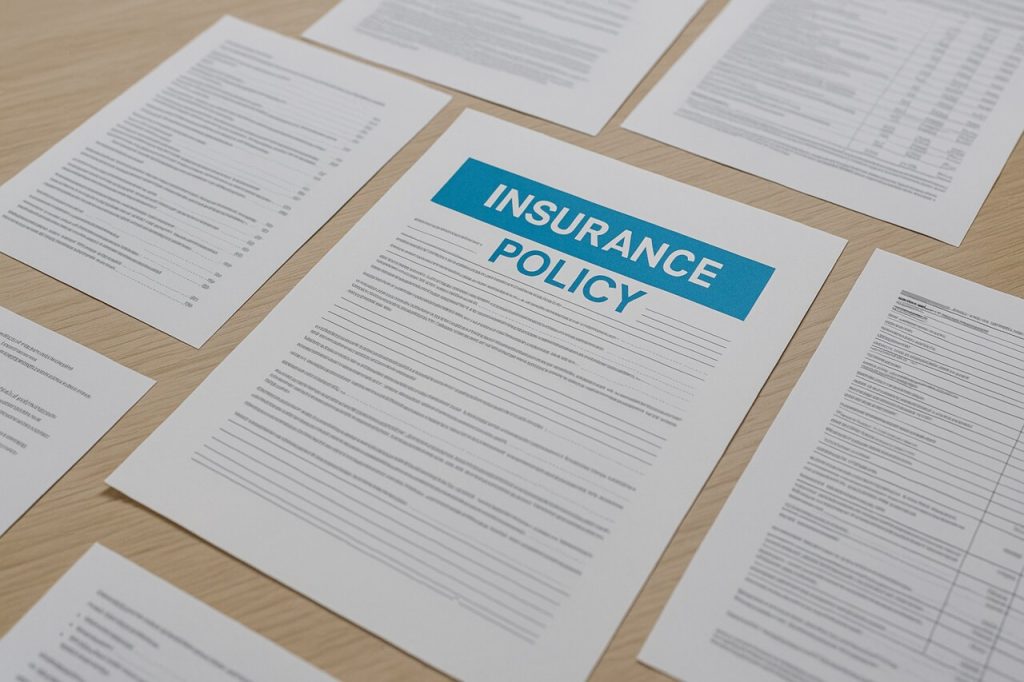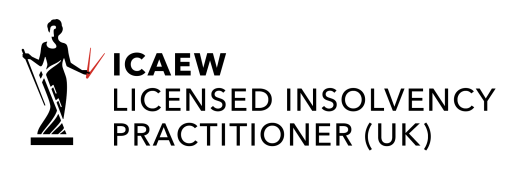Falling behind on insurance payments can feel frightening. You know cover is important, yet cashflow is tight, and the company may already be juggling other bills. It is natural to wonder whether you can close the business when it still has insurance debt, and what that might mean for you personally.
The good news is that there are clear, legal routes to bring a struggling company to an orderly end, even where insurance premiums and other debts are unpaid. The key is choosing the right option for your situation and understanding your duties as a director. At Anderson Brookes, our licensed insolvency practitioners help people in this position every day, providing calm, regulated advice so you can see the risks, the safeguards and the practical next steps with confidence.

What It Means If Your Company Owes Money to an Insurance Provider
When a company owes money to an insurance provider, that unpaid balance is usually treated as a business debt. The insurer, or a premium finance company if the policy has been funded through credit, is simply one of your unsecured creditors. In practical terms, it sits alongside other unpaid bills such as suppliers, landlords or HMRC.
The debt itself might relate to missed monthly premiums, a cancelled policy with outstanding instalments, or a premium finance agreement where the lender has paid the insurer upfront and is now chasing the company for repayments. The exact paperwork will vary, but the effect is similar. Someone is owed money for the cost of keeping vital insurance in place.
Falling behind with insurance often goes hand in hand with wider cashflow pressure. If there is not enough money to cover essential cover such as motor, public liability, employer’s liability or professional indemnity insurance, it usually means other creditors are waiting as well. That is why insurance arrears can be an early warning sign that the company may be in financial distress rather than a one off blip.
Under UK law, a company is generally treated as insolvent if it cannot pay its bills when they fall due or if it has more liabilities than assets on its balance sheet. These are often called the cashflow test and the balance sheet test of insolvency. If the business fails either test, your legal duties as a director begin to shift away from shareholders and towards protecting creditors as a whole.
Owing money to an insurance provider does not automatically mean the company is insolvent. A profitable business can be late on a payment and catch up again. The key question is whether the company can realistically clear its debts, including insurance arrears, within a reasonable period without falling further behind elsewhere. If it cannot, it is safer to treat the position as potential insolvency and seek regulated advice before deciding how to move forward.
Closing a Company with Debts: Short Answer and Key Principles
In most cases you can close a company that still owes money to an insurance provider. The key point is that you must use a route that treats all creditors fairly and follows company law, rather than simply walking away or letting the company drift.
Everything turns on whether the company is still solvent. If the business can realistically pay all of its debts in full, including any unpaid insurance premiums, it is usually treated as solvent. If it cannot pay its bills as they fall due, or if total liabilities are greater than total assets, it is likely to be insolvent.
For a solvent company, it may be possible to settle what is owed and then close your limited company through an orderly process, such as a voluntary strike off or a members’ voluntary liquidation, depending on assets and tax considerations.
For an insolvent company, your duties change. Once there is a real risk that the company cannot pay its debts, you must prioritise the interests of creditors as a whole, rather than shareholders. That usually means not taking further credit, not favouring one creditor over another, and taking specialist advice on the right formal process to close the company and deal with what is owed.
Trying to shut down informally, ignore letters from the insurer or keep trading in the hope that things improve can increase the risk of personal criticism or, in serious cases, personal liability. Using a clear, regulated route to closure gives you structure, reduces anxiety and helps show that you have acted responsibly throughout.
Sectors We Support
We support company directors in every sector, from construction firms and logistics companies to pubs, cafés, restaurants, hotels, retailers and manufacturers. Our advice is always clear, confidential and shaped by real experience in your industry. Whether you’re dealing with unpaid tax, supplier pressure or falling income, our team understands the challenges and will guide you through the best next steps.
Is Strike-Off Appropriate?
Voluntary strike-off is often seen as the simplest way to close a company. You apply to Companies House to remove the company from the register and, after a notice period, it is dissolved. For many dormant or solvent companies that are no longer needed, this is a straightforward way to bring things to an end.
It is different if the company still owes money. To use strike-off properly, the company should usually have stopped trading, settled its debts, and have no ongoing disputes with creditors. Official guidance is clear that voluntary strike off is not an alternative to formal insolvency proceedings where the company cannot pay what it owes.
Before you apply, you must tell anyone who could be affected, including creditors such as your insurance provider or a premium finance company. They are then given the chance to object if they believe money is still owed or if there are ongoing issues. If an insurer objects, the strike off can be delayed or stopped. If the company is dissolved and a creditor later discovers what has happened, they can ask the court to restore the company so they can pursue the debt.
Trying to strike your company off the register while there are unpaid insurance premiums, debt collection activity or legal action in progress can cause serious problems. At best, the application may be rejected. At worst, it can raise questions about whether you have tried to avoid paying creditors, which can be taken into account if the company later enters liquidation. Using the right process from the start gives you a cleaner, safer route out and helps show that you have acted in good faith.
Closing an Insolvent Company with Insurance Debt
Recognising when insolvency has been reached
If the company is insolvent and cannot realistically repay what it owes, including insurance premiums, it usually needs a formal insolvency process rather than simple strike off. This is how you protect creditors as a whole and show that you have acted properly as a director.
Why liquidation is usually required
In the UK there are three main types of liquidation. These are Creditors’ Voluntary Liquidation (CVL) for insolvent companies, Members’ Voluntary Liquidation (MVL) for solvent companies and compulsory liquidation ordered by the court. For a company that owes money to an insurance provider and other creditors and cannot pay, CVL is usually the most appropriate route.
How Creditors’ Voluntary Liquidation works
Through a CVL you and any fellow directors make a positive decision to close your company via voluntary liquidation. You stop trading, appoint a licensed insolvency practitioner as liquidator, and hand over control so that they can deal with the assets, creditors and legal duties on behalf of the company.
Although every case is different, the process of putting your company into liquidation often follows a clear pattern. You speak to an insolvency practitioner, decide to stop trading, hold a board meeting, arrange shareholder approval, and then invite creditors to a formal meeting. Once appointed, the liquidator collects and sells assets where possible, agrees and ranks creditor claims, and distributes any available funds in the correct legal order.
Many people worry about the cost of this, especially where the company is small and already under pressure. In practice there are options for low-cost liquidation that are designed for smaller businesses with limited assets and straightforward affairs, while still giving you the protection and structure of a full CVL.
What happens to the insurance debt
During liquidation, your insurance provider (or premium finance company) is treated as an unsecured creditor unless they hold specific security. They submit a claim, just like other creditors. If there are funds to distribute, they receive their fair share. If there are not enough assets to clear all debts, any remaining balance owed by the company is written off at the end of the liquidation, subject to any separate personal guarantees or personal liability.
Why timing matters
If you are already worried that the company cannot catch up on its insurance and other bills, it is usually safer to talk this through early rather than waiting for court action or a winding up petition. A calm, planned move into the right form of liquidation is almost always less stressful than being forced into compulsory liquidation later.
Closing a Limited Company with Debts?
Fast and Stress-Free Solutions.
Start closing your limited company today. Placed into liquidation within 8 days. We fully understand that timing is critical.
Worried about your Bounce Back Loan?
Need to close your limited company? Speak to an expert who’s helped thousands do the same – even with company debts or creditor pressure.
Stop Creditor Pressure
Getting constant calls from creditors? Closing your company through liquidation can give you the relief to move forward.
Directors: Avoid Risks When Winding Up Your Company
We guide you, simply, honestly. Let us handle everything.
Personal Guarantees and Insurance Finance Agreements
Not all insurance debts are the same. In some cases the company simply owes unpaid premiums direct to the insurer. In others, there is a separate finance agreement that spreads the cost of cover over the year. This detail matters, because it can affect whether the debt stays with the company or can follow you personally.
With a straightforward trade debt, the insurance provider is usually just an unsecured creditor of the company. If the business later enters liquidation and there are not enough assets to pay everyone in full, any remaining balance owed to the insurer is written off at the end of the process. The liability sits with the company, not you, unless you have done something that creates personal responsibility.

Premium finance works differently. A lender pays the full annual premium to the insurer at the start of the policy year. The company then repays the lender in instalments. These agreements often include stronger recovery powers for the finance company, and, in many cases, a personal guarantee from one or more directors. That guarantee is a separate promise that you will pay if the company cannot.
If there is a personal guarantee in place, some or all of the balance owed on the finance agreement can become a personal debt. Closing the company does not remove that guarantee. Even after liquidation, the lender can still pursue you as an individual for any shortfall, subject to any separate personal insolvency options that might be available.
The first step is to gather the paperwork and work out exactly who is owed what. Look at the original insurance schedule, any credit agreements and any guarantee or indemnity forms you have signed. A licensed adviser can help you understand which parts of the insurance related debt will be dealt with in the company process and which might need personal advice as well.
If you are unsure whether you have given a personal guarantee, it is important not to ignore the issue. Raising it early when you speak to a specialist gives you the chance to plan ahead, manage expectations and find the most realistic way forward for both the company and your own finances.
Free Confidential Advice & Quote


Practical Risks of Not Being Properly Insured
When money is tight, it can be tempting to let insurance slide and hope things improve. The problem is that some policies are not optional, and trading without them can create far bigger problems than the premiums themselves.
Certain covers, such as employer’s liability insurance for most businesses with staff, are a legal requirement. Others, like motor insurance, public liability and professional indemnity, are often essential to contracts or to protect against claims. If a policy lapses while the company is still trading, you could face fines, penalties, or claims that the business simply cannot afford.
There is also the risk of a serious incident while cover has lapsed. If a customer is injured, an employee suffers an accident at work, or a professional mistake causes loss, there may be no insurer to step in. The company is left facing the full cost of the claim. In some cases that can trigger immediate insolvency and push the business into compulsory liquidation.
Continuing to trade while insolvent, or while knowingly under-insured, can increase the chance of later criticism of your conduct as a director. Investigations in a liquidation look at the period leading up to failure. If the company carried on trading for too long without proper protection, that can form part of the picture.
Taking early advice can break this cycle. Rather than trying to juggle unaffordable premiums and other debts, you can look calmly at whether it is time to stop trading, protect creditors as a whole and close the company in a controlled way. That reduces your risk, helps you meet your duties and gives you a clearer path to move on.
Closing a Company with Debts: Common Mistakes
When pressure is building from insurers and other creditors, it is easy to make rushed decisions. Some choices feel like the quickest way to escape the stress, but can actually make things harder in the long run.
Typical common mistakes when closing a company include:
- Applying for strike off too soon. Directors file a DS01 even though there are unpaid insurance premiums, bailiffs involved or court action under way. Creditors then object, or seek to restore the company later, which drags the process out and can invite closer scrutiny.
- Paying one creditor while ignoring others. It is natural to want to pay the loudest creditor first, such as an insurer that is threatening to cancel cover. Favouring one creditor over the rest can be challenged later in a liquidation if it looks like a “preference”.
- Continuing to trade when there is no realistic way back. Carrying on, taking new orders, or signing new contracts in the hope that things will improve can increase losses to creditors and raise questions about wrongful trading.
- Moving assets out of the company. Transferring vehicles, tools, or customer lists to friends, family or a new business at undervalue can be unwound by a liquidator and may create personal risk.
- Relying on informal promises. Agreeing payment plans that the company cannot keep, or relying on verbal understandings with insurers or finance companies, often just delays the problem and adds to the worry.
People also avoid proper help because of misunderstandings about liquidation. There are many CVL myths, such as the idea that you will automatically be banned from being a director again, or that you will always lose personal assets. In reality, most directors who take early advice, act openly and follow a clear process are able to move on and rebuild.
Taking a little time now to understand the formal options usually saves a lot of time, cost and anxiety later. It puts you back in control, rather than waiting for a creditor, including your insurer, to make the first move.
How Anderson Brookes Can Support You
Trying to work out the right way to close a company with debts is a lot to carry on your own. It can feel as if every decision has consequences, and that one wrong move could make things worse. This is where calm, regulated advice really matters.
At Anderson Brookes you speak directly with a licensed insolvency practitioner. That means you are dealing with a qualified professional who is authorised and regulated to give insolvency advice, look after creditors’ interests and guide you through formal processes. You are not expected to know the rules yourself. Our role is to explain them in clear, practical language.
We start by listening. You can talk through what is happening with your insurer, any premium finance agreements, and the wider picture with other creditors. We then review your company’s position, including assets, liabilities and cashflow, so we can help you understand whether the business is solvent, borderline or clearly insolvent.
From there we set out your options. If the company is still solvent, that might mean an orderly wind down and closure. If it is insolvent, we explain how a creditors’ voluntary liquidation would work in your situation, and what that would mean for the insurance debt and any personal guarantees. You stay involved in decisions, but you do not have to carry the technical detail alone.
Once you decide on a way forward, we manage the process. That includes preparing the paperwork, guiding you through board and shareholder meetings, and dealing with creditors such as insurers and finance companies. Our aim is to reduce day to day stress, protect you from avoidable risk and give you a clear path to closure.
Throughout, you have one team to contact with questions or worries. Nothing is too small or too basic to ask. We know that most people only go through this once. Our job is to make sure you feel informed, supported and able to move on with confidence when the process is complete.

Need support with company insurance debt? Our licensed insolvency practitioners can help. Call Anderson Brookes on 0800 1804 935 or get advice by email at advice@andersonbrookes.co.uk.
Frequently Asked Questions
Will I be personally liable for unpaid insurance if the company is liquidated?
Usually the debt sits with the company, not you. In a liquidation, the insurer or premium finance company claims in the process like any other unsecured creditor. If there are not enough assets to pay everyone in full, the unpaid balance is written off at company level. You can still be personally liable if you have signed a personal guarantee, provided misleading information, or in rare cases where a court finds serious misconduct.
What if the insurer has already started court action or instructed debt collectors?
You should not ignore this. Court claims, County Court Judgments and enforcement all need to be taken seriously. At the same time, ongoing action does not stop you from seeking insolvency advice. A licensed practitioner can look at what stage things have reached and explain how a formal process such as creditors’ voluntary liquidation might interact with any existing proceedings.
Can I change insurers and leave the debt behind if I close the company later?
Switching insurers does not remove existing arrears. The old insurer or premium finance company can still pursue the company, and, if there is a personal guarantee, you personally. If the business is already struggling, changing provider often just moves the pressure around. It is usually better to step back and decide whether the company is still viable or whether a proper closure route is needed.
What happens if Companies House has already struck the company off but the insurer is still chasing me?
If the company has been dissolved while money is still owed, a creditor can apply to have it restored. That allows them to pursue the debt as if the company had never been removed. If you receive letters about restoring the company or chasing old insurance debts after strike off, it is important to get advice quickly so you understand the options and any risks to you.
Is it ever too late to get help from an insolvency practitioner?
In most cases it is not too late. Even if creditors are threatening court, a winding up petition is on the horizon, or the company has already stopped trading, it is still worth speaking to a specialist. The options may be narrower than they were a few months earlier, but there is almost always something constructive that can be done to manage the position and reduce uncertainty. The earlier you talk, the more choice you tend to have.
Get Help Now
If you are worried about unpaid insurance premiums or other company debts, talking it through with a specialist can make everything feel lighter. You can speak to us in complete confidence and with no obligation.
Call 0800 1804 935 for a free consultation. Our licensed insolvency practitioners are here to support you. You can also email us at advice@andersonbrookes.co.uk or contact us online. We’re ready to help.

